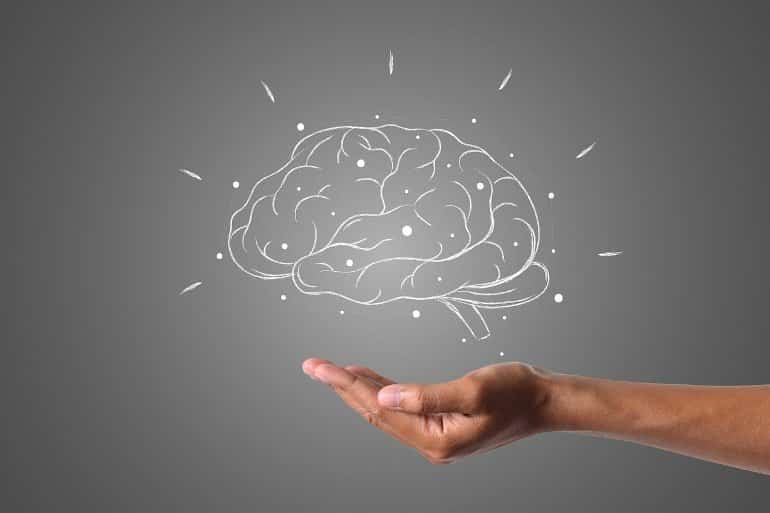Summary: The effects of intoxication, such as slurred speech and poor coordination, are a result of the breakdown of alcohol products in the brain and not the liver.
Source: University of Maryland
The slurred speech, poor coordination, and sedative effects of drinking too much alcohol may actually be caused by the breakdown of alcohol products produced in the brain, not in the liver as scientists currently think.
That is the finding of a new study led by researchers from the University of Maryland School of Medicine (UMSOM) and the National Institute on Alcohol Abuse and Alcoholism.
The study was published recently in the journal Nature Metabolism and provides new insights into how alcohol may affect the brain and the potential for new treatments to treat alcohol misuse.
It is well known that the liver is the major organ that metabolizes alcohol, using the enzyme alcohol dehydrogenase to convert alcohol into a compound called acetaldehyde. Acetaldehyde, which has toxic effects, is quickly broken down into a more benign substance called acetate. This occurs through a different enzyme called acetaldehyde dehydrogenase 2 (ALDH2).
Until now, alcohol and acetaldehyde, produced by the liver, have been considered important players in triggering the cognitive impairment associated with imbibing. Acetate, on the other hand, was considered relatively unimportant in producing effects like motor impairment, confusion, and slurred speech. Researchers also did not know which brain region or particular brain cells were most important for alcohol metabolism.
To learn more about the role played by the brain in alcohol metabolism, the researchers measured the distribution of ALDH2 enzyme in the cerebellum, using magnetic resonance (MR) scanners in both mice and in human tissue. They observed that ALDH2 was expressed in the cerebellum, in a type of nerve cell called an astrocyte, in both human brain tissue and in living mice.
The researchers found that this enzyme controlled the conversion of acetaldehyde into acetate in the brain. They also found alcohol-induced cellular and behavioral effects in specific regions of the brain where this enzyme was expressed. Acetate was found to interact with the brain messenger chemical called GABA, which is known to decrease activity in the nervous system. This decreased activity can lead to drowsiness, impair coordination, and lower normal feelings of inhibition.
“We found ALDH2 was expressed in cells known as astrocytes in the cerebellum, a brain region that controls balance and motor coordination,” said Qi Cao, PhD, Assistant Professor of Diagnostic Radiology and Nuclear Medicine at the University of Maryland School of Medicine. “We also found that when ALDH2 was removed from these cells, the mice were resistant to motor impairment inducted by alcohol consumption.”

Su Xu, PhDHe and his team also found the enzyme ALDH2 in other brain regions responsible for emotional regulation and decision-making (both impaired by excess alcohol consumption), including in the hippocampus, amydala, and prefrontal cortex.
These findings suggest that certain brain regions are important for alcohol metabolism and that abnormalities in the enzyme production in these brain regions can lead to detrimental effects associated with alcohol misuse. They also suggest that acetate produced in the brain and in the liver differ in their ability to affect motor and cognitive function.
“Our next step is to determine whether these mechanisms observed in mice also exist in people,” said Dr. Cao. “We would like to know whether alcohol metabolism is directly regulated in the human brain. If further research confirms this to be the case, it could lead to potential new targets for treating alcohol use disorder.
“This is an exciting basic research finding that elucidates important pathways involved in the body’s metabolism of alcohol. It suggests that acetate serves as the important missing link connecting the body’s metabolism of alcohol with cognitive changes in the brain,” said E. Albert Reece, MD, PhD, MBA, Executive Vice President for Medical Affairs, UM Baltimore, and the John Z. and Akiko K. Bowers Distinguished Professor and Dean, University of Maryland School of Medicine.
“Replication of this research could eventually lead to new avenues for treatment of alcohol use disorder.”
Su Xu, PhD, Professor of Diagnostic Radiology and Nuclear Medicine, was a co-author on this study.
About this brain mapping research news
Source: University of Maryland
Contact: Deborah Kotz – University of Maryland
Image: The image is in the public domain
Original Research: Closed access.
“Brain ethanol metabolism by astrocytic ALDH2 drives the behavioural effects of ethanol intoxication” by Shiyun Jin, Qi Cao, Fanghan Yang, Hongying Zhu, Su Xu, Qi Chen, Ziyi Wang, Yuhong Lin, Resat Cinar, Robert J. Pawlosky, Ye Zhang, Wei Xiong, Bin Gao, George F. Koob, David M. Lovinger & Li Zhang. Nature Metabolism
Abstract
Brain ethanol metabolism by astrocytic ALDH2 drives the behavioural effects of ethanol intoxication
Alcohol is among the most widely used psychoactive substances worldwide. Ethanol metabolites such as acetate, thought to be primarily the result of ethanol breakdown by hepatic aldehyde dehydrogenase 2 (ALDH2), contribute to alcohol’s behavioural effects and alcoholism.
Here, we show that ALDH2 is expressed in astrocytes in the mouse cerebellum and that ethanol metabolism by astrocytic ALDH2 mediates behavioural effects associated with ethanol intoxication. We show that ALDH2 is expressed in astrocytes in specific brain regions and that astrocytic, but not hepatocytic, ALDH2 is required to produce ethanol-derived acetate in the mouse cerebellum.
Cerebellar astrocytic ALDH2 mediates low-dose ethanol-induced elevation of GABA levels, enhancement of tonic inhibition and impairment of balance and coordination skills. Thus, astrocytic ALDH2 controls the production, cellular and behavioural effects of alcohol metabolites in a brain-region-specific manner.
Our data indicate that astrocytic ALDH2 is an important, but previously under-recognized, target in the brain to alter alcohol pharmacokinetics and potentially treat alcohol use disorder.







